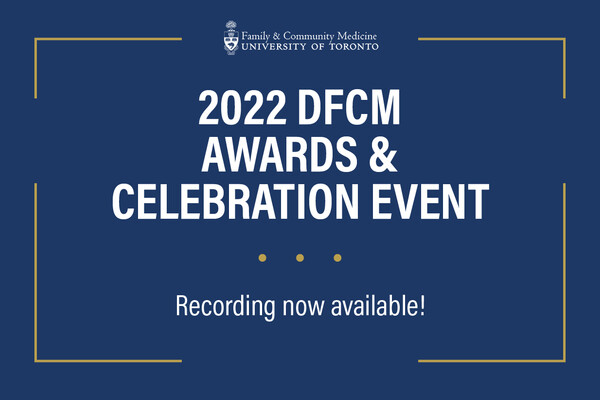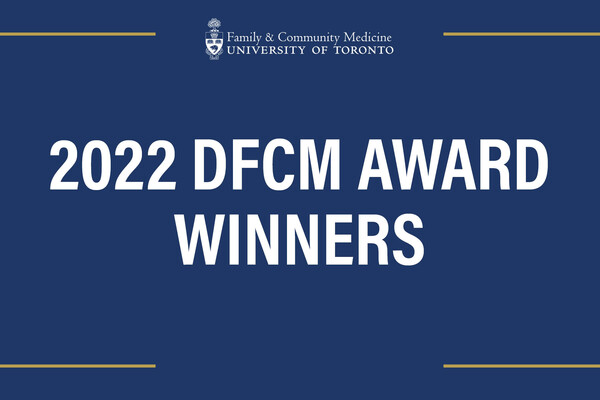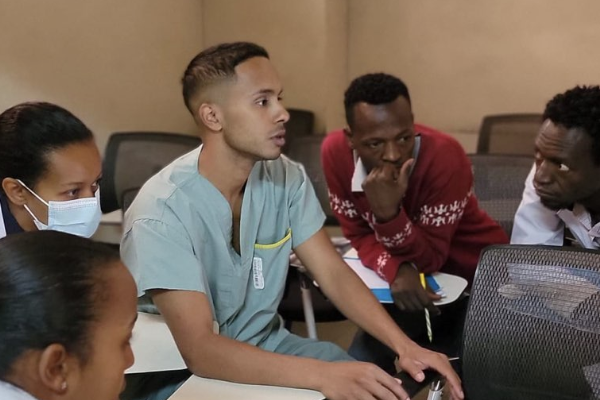Crossroads Clinic: Providing safe and sensitive care for refugees and newcomers
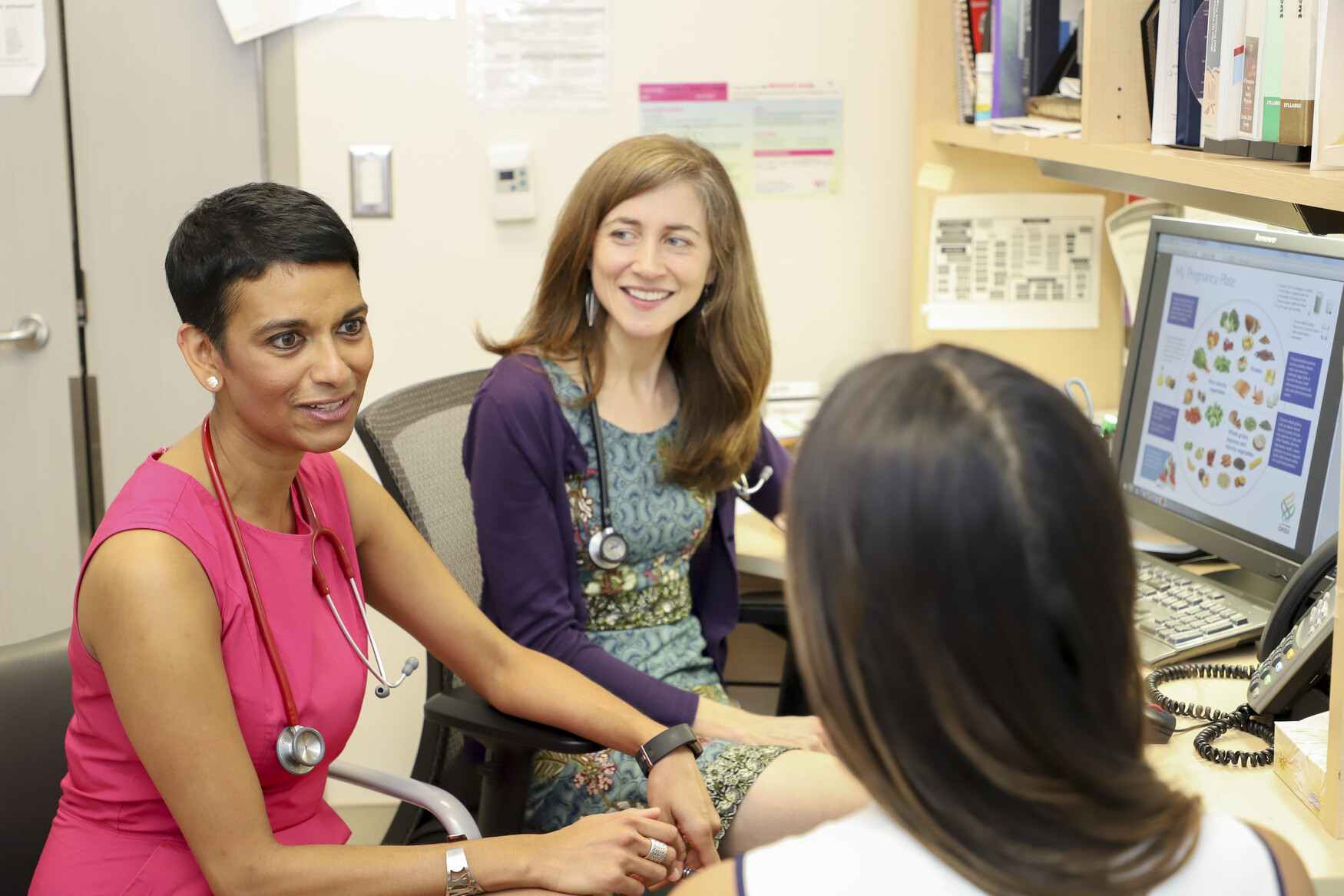
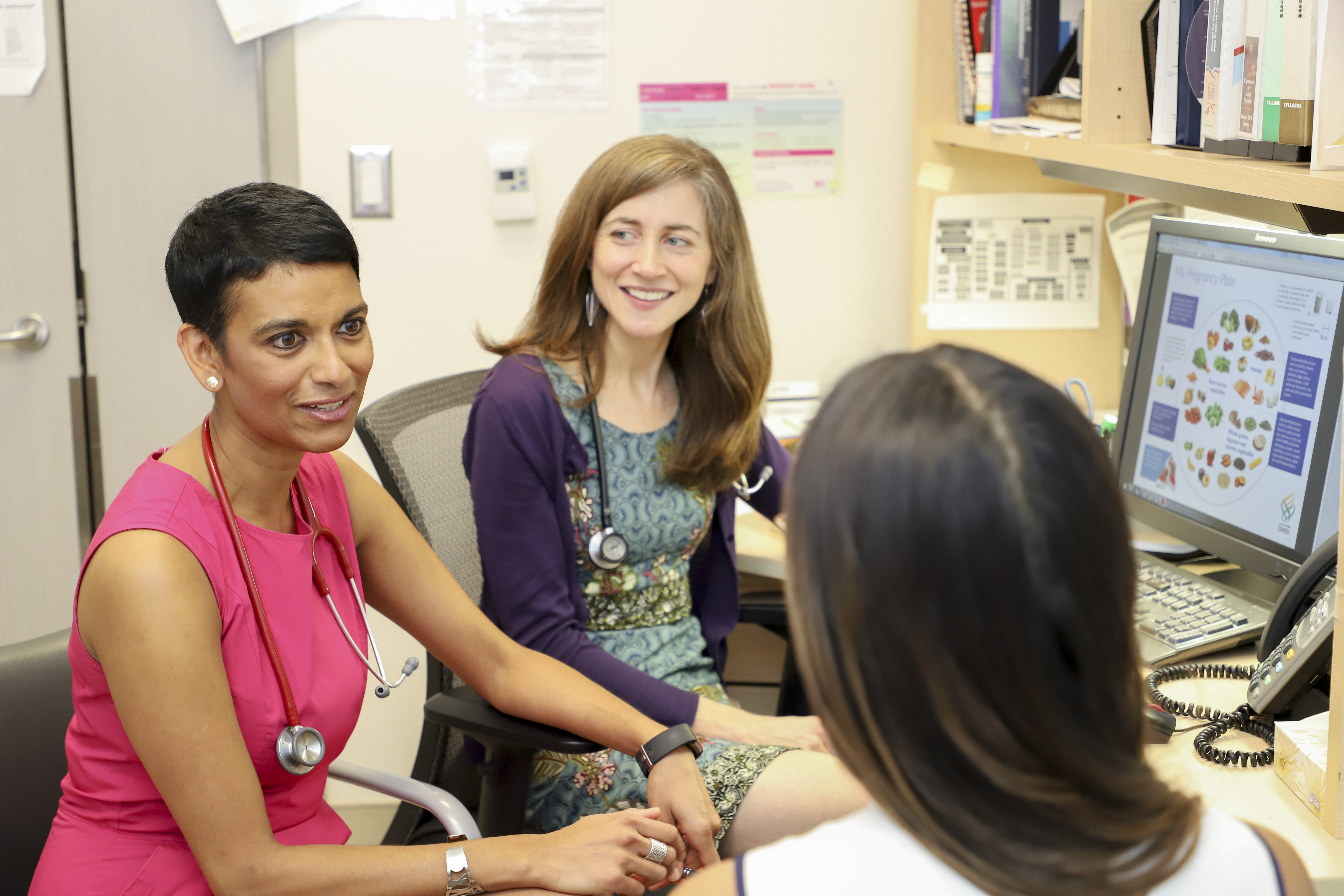 Globally, the migration of refugees has continued to rise. Driven by fear of persecution based on race, religion, social group or political opinion, 25.9 million refugees were displaced in 2018 – the highest number ever recorded. In 2019, Canada accepted 48,510 refugees, approximately 14% of newcomers that year, with many settling in Toronto.
Globally, the migration of refugees has continued to rise. Driven by fear of persecution based on race, religion, social group or political opinion, 25.9 million refugees were displaced in 2018 – the highest number ever recorded. In 2019, Canada accepted 48,510 refugees, approximately 14% of newcomers that year, with many settling in Toronto.
Now a new report released by the University of Toronto Department of Family and Community Medicine (DFCM), highlights the critical role family doctors play in caring and advocating for diverse populations, including refugee newcomers.
>> Read the 2020 University of Toronto Family Medicine Report: Caring for Our Diverse Populations
Although each person’s journey through the refugee process is different, gradual resettlement is always challenging. Arriving in Canada with the hope of a better life, many refugees are faced with urgent need for housing, food, employment and, for children, education. On top of this, some newcomers must manage culture shock and learning a new language.
Many refugees also arrive with health conditions stemming from poor health care and the physical and psychosocial effects of war, violence and refugee camps. However, health care is rarely their first priority.
“Almost all our new arrivals have endured some form of trauma,” explains Dr. Meb Rashid, a family doctor and assistant professor at DFCM. “Some studies estimate that 10-20% of refugees struggle with Post-Traumatic Stress Disorder, and many more grapple with other mental health conditions and emotional distress.”
For this already vulnerable population, navigating the Canadian medical system can feel almost impossible when layered on top of limited English proficiency, family separation, social isolation and now the COVID-19 pandemic. That’s where the Crossroads Clinic comes in.
Founded in 2011 at Women’s College Hospital, Crossroads Clinic was opened to provide primary care that is culturally safe, sensitive and tailored to meet the needs of refugees.
“Refugees often arrive with chronic unmanaged health conditions such as diabetes or hypertension. Adult women may never have had a pap test. And some arrive from areas of the world with higher rates of infectious diseases such as hepatitis B,” explains Dr. Praseedha Janakiram, an assistant professor at DFCM and a family doctor at the Crossroads Clinic. “We identify and manage these health conditions before they become more significant, which can reduce reliance on emergency department visits in future.”
Patients are served at the Crossroads Clinic for a minimum of two years after which they are transitioned to primary care providers in their community. Crossroads Clinic has seen over 4,000 individuals since it opened, with approximately 8,000 clinic visits each year. Alongside clinical care, the Crossroads Clinic also provides support and education for other family doctors and primary care providers serving refugee patients.
But since the COVID-19 pandemic began, the team have had to pivot to meet the needs of a population that has been affected in unique ways by the pandemic.
Studies have shown significantly higher rates of COVID-19 infection among refugees and other immigrants, due to factors such as employment as essential frontline workers, living in high density housing, and reliance on public transportation.
“We’ve witnessed the disproportionate impacts of COVID on our patient population. Both in terms of infection rates, and the exacerbation of social isolation, financial and food insecurity, employment precarity and many other inequities,” explains Dr. Vanessa Redditt, a lecturer at DFCM and the Dalla Lana School of Public Health, and a family doctor at the Crossroads Clinic. “Plus, the transition to virtual care risks further marginalizing those without phone or internet access, those with language barriers, and potentially individuals in shared living spaces without privacy. We’ve been identifying and contacting patients at higher risk to address these gaps and to connect them with available services. It’s critical that we adopt an equity-oriented approach to bridge this digital divide.”
Despite the tremendous hardships refugee newcomers endure, most do very well in Canada. This is a large part due to their remarkable resilience and courage, as well as the networks of family doctors, healthcare professionals and others that play an important role in supporting the long-term integration, health and empowerment of refugees.
News
